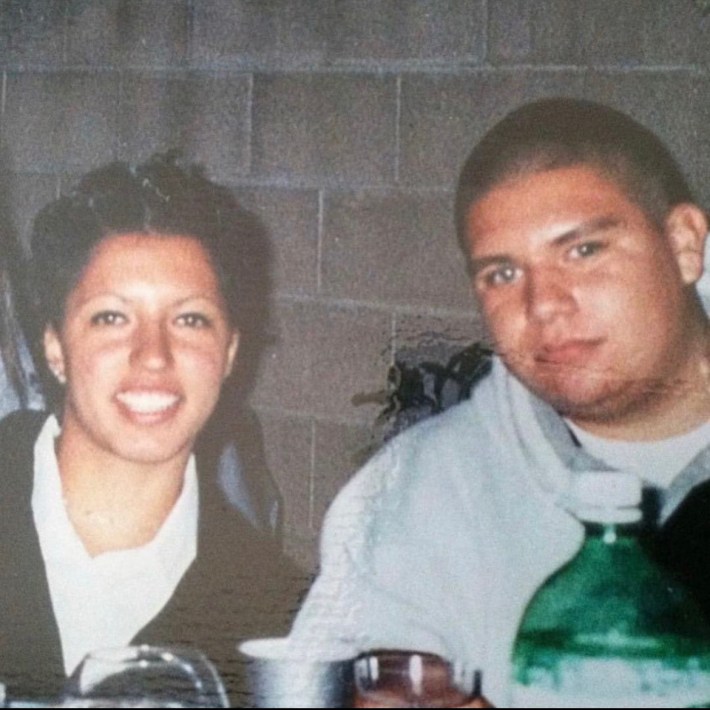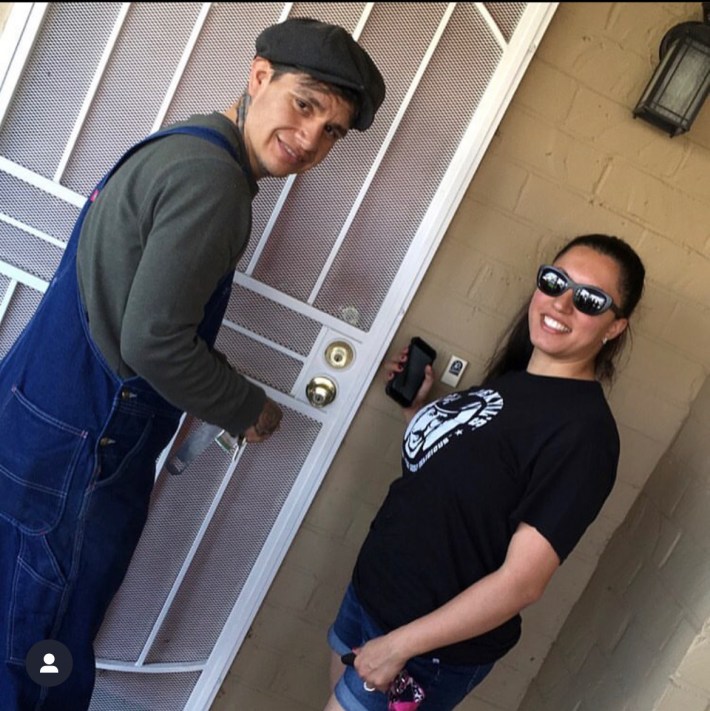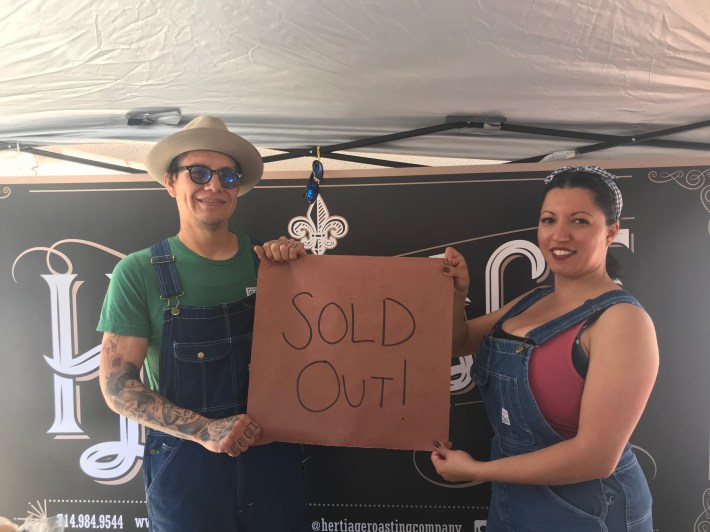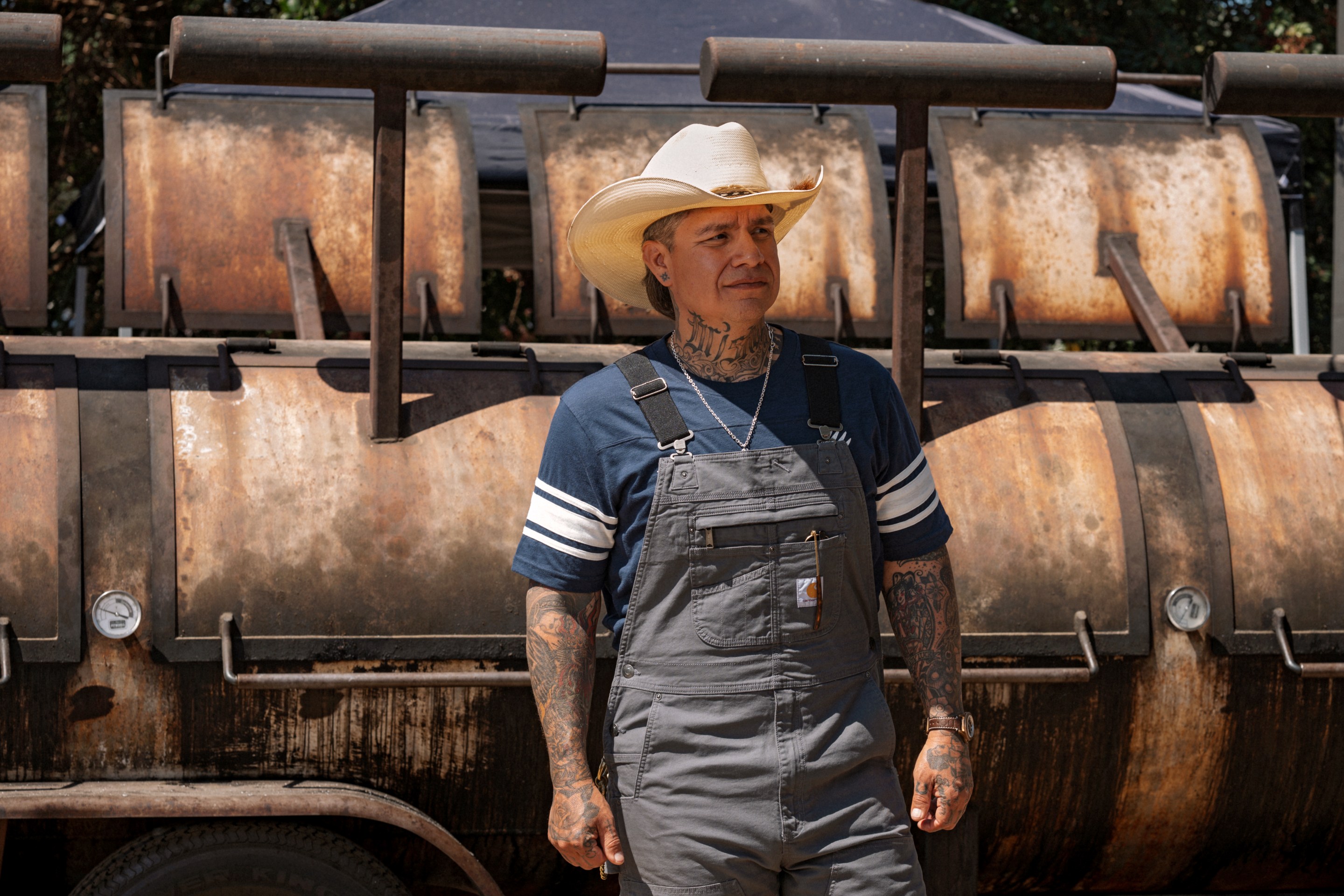Often in food media, we tend to focus on the success of a chef or restaurant. But what about their life before that? Daniel Castillo opened up to L.A. TACO Editor-in-Chief Javier Cabral about everything he had to overcome to become the current James Beard Award finalist, and how sometimes “the only journey is the one within (Rainer Mmaria Rilke).”
Growing up, I never quite felt like I fit in. Even though I look the way I do and my barbecue is inspired by my Californian and Mexican roots, I never spoke a lick of Spanish…to this day.
I was born and raised in Whittier. My family was a wild mix—my mom was half white, half Mexican, with roots that stretched from German blacksmiths to braceros. My dad was a low rider cholo from Westminster who ended up in prison for most of his life, leaving my mom to raise me alone. We were always living on the edge, with drug dealers that my dad owed a lot of money to showing up at our house. My mom sometimes had to give away my dad's lowriders to keep us safe.
I was an angry kid, always getting into fights, feeling lost between cultures. People would look at me and expect me to speak Spanish, but I didn't know a word. I found my tribe with the punk rockers and rockabilly kids, the outsiders that didn’t fit into the mainstream—the ones smoking behind the school’s alleyway, who didn't care about labels or appeasing anyone.



My grandfather was this old-school machismo guy—a masonry worker who was the first in his neighborhood to own a home. He'd drag me away from the kitchen, where I loved cooking with my grandmother, insisting I learn how to work hard instead of doing “women’s work.” He drove a BMW that he always kept shiny, wore cowboy boots and tejanas every day, and was incredibly proud to be an American.
My wife and I both dropped out of high school when she found out she was pregnant. We became teenage parents struggling paycheck to paycheck. But that's where we learned where to hustle. We both came from broken homes so we decided we were going to stick it out for our family.
Cooking eventually became my salvation. I started barbecuing in a rusty pit in our backyard, feeding 50 to a 100 strangers every weekend. My wife Brenda kept telling me I should go to culinary school, and eventually, I did. I went from working odd jobs to becoming a corporate chef at Whole Foods, experimenting with barbecue techniques and building these makeshift smokers from random finds on the street.
By 2016, we were doing pop-up barbecue events that became legendary in Orange County. We'd sell out every single time, growing from backyard gatherings to brewery events, building a cult following. When the pandemic hit, we took a massive risk and opened our restaurant in August 2020—and somehow, we made it work.
It wasn't all smooth sailing. What very few people knew was that I was drinking heavily, struggling with the pressure, and battling my own demons. I had a lot of childhood trauma that was surfacing when I stopped numbing it with alcohol. There are straight-up unwanted memories that I pushed so deep down that were coming back up because I was clear-headed for the first time in my life.



The restaurant's success came with a price. We were making money, but the stress was eating me alive. I was drinking more and more, trying to convince myself it wasn't affecting my work. But it was. The pandemic added another layer of complexity—we were basically surviving by being one of the few places open in South Orange County. We didn’t stay open as a political statement, we stayed open because we couldn’t afford not to be open.
People would drive from all over California and the rest of the country just to get our barbecue. We'd sell out every single day. But behind the scenes, I was falling apart. Everyone wanted a piece of our success—vendors, staff, customers who waited hours to eat with very high expectations.
Now, I'd like to share my story. I want to show other kids from mixed backgrounds, from broken families with addiction, that you're not destined to repeat the same patterns. You can break the cycle. You can build something beautiful, even when the odds are stacked against you.
My drinking got worse. I was spiraling, and my wife knew it. She'd been supporting me through everything—she was the one who encouraged me to go to culinary school, who believed in me when I was just doing backyard barbecues. Now, she was watching me self-destruct.
The breaking point came when my mental health completely collapsed. I ended up in the hospital, facing my demons head-on. Anxiety, depression—all the stuff I'd been running from my entire life finally caught up with me. My family history of addiction, my grandfather's alcoholism, my father's drug addiction—it was like a genetic curse I couldn't escape. We didn’t keep it from our staff either. Brenda told them that I couldn’t come into work because I was at the hospital. They looked up to me, and I felt like I was failing them, too.

But here's the thing: I decided to fight back. I started therapy, got on medication, and started embracing my struggles. My wife was my rock throughout it all. I stepped back from the restaurant for just a bit and focused on healing.
We take mental health seriously at the restaurant now, and we make time to speak with our crew and provide a safe space for them to share whatever they are going through. We hold monthly meetings to ensure that we promote a positive work environment and listen to our employees.
Through my ups and downs in this industry, being a great chef is more than just being a good cook; it's also about being a leader worth following. It’s about how you treat the people who work for you, and how you care for them and encourage them—giving them affirmation and thanking them. I think it’s a quality that every chef should possess, especially in the post-COVID-19 restaurant industry. To this day, being open for five years, we’ve only had four employees move on. Everyone who starts working with us usually stays with us.
Now, I'd like to share my story. I want to show other kids from mixed backgrounds, from broken families with addiction, that you're not destined to repeat the same patterns. You can break the cycle. You can build something beautiful, even when the odds are stacked against you.
My barbecue isn't just food. It's my story—a mix of cultures, struggle, survival, and hope.
As told to Javier Cabral






